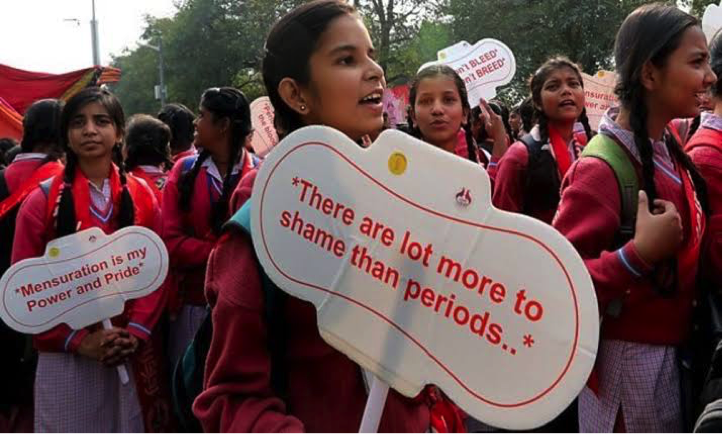By Meiya Folwell
Bachelor of Secondary Education/ Bachelor of Arts
We all know women around the world are confronted with gender norms that more often than not disadvantage them. Our week in Mumbai along with our studies at Tata Institute of Social Science has shown us that in India is no different, with deeply rooted cultural ideologies marginalising women.
Within the Indian society there are many embedded cultural beliefs that hinder women from full participation in economic and social life, which we has been seen with the lack of women in the streets and formal jobs in Mumbai. One of these cultural beliefs is the stigma around menstruation in public and in private. Talking about menstruation is a large taboo in India and is clouded in shame due to cultural beliefs.

Many of these are based on religious beliefs and include the view that women on their period are impure, and dirty and therefore cannot enter temples, the kitchen or be touched by anyone.
The inability to talk about these issues results in a lack of information being shared between generations and brings about a sense of shame and inadequacy in having these bodily functions as women. Menstruation is a topic so tightly wrapped up in taboo that these social practices are not talked about and have managed to live on into the 21st century.
A combination of a lack of education as well as a lack of toilet and sanitation facilities creates even more problems for women. Only 12% of India’s 335 million menstruating women use sanitary napkins with 88% of women resorting to alternatives such as unsanitised cloths and sometimes even newspapers, ashes and dried leaves to help with absorption. Women are therefore easily susceptible to infection.
Girls are also more likely to drop out of school once they start menstruating. This trend is particularly marked in rural India. A lack of awareness of pads in rural areas means they use cloths with inadequate access to toilets creating a lack of privacy. 23% of girls drop out of school after they start menstruating with these social practices making women feel inferior and shameful about their bodies.
Education is key to change in this and other aspects of women’s reproductive health, and life chances. Without formal education women will not be empowered and lack the tools and knowledge necessary to improve their quality of life and alleviate the poverty that they may face.
Menstruation is a normal bodily function that women are unable to control and if the cultural beliefs are not combatted, women will continue to be at a disadvantage in society. It is a sign of fertility and the ability to bring new life into the world and should be celebrated and openly discussed without fear and humiliation.
Stigmatising cultural beliefs about menstruation and the inability to talk about them within society uphold these gender inequalities and act as another barrier that women have to face.

